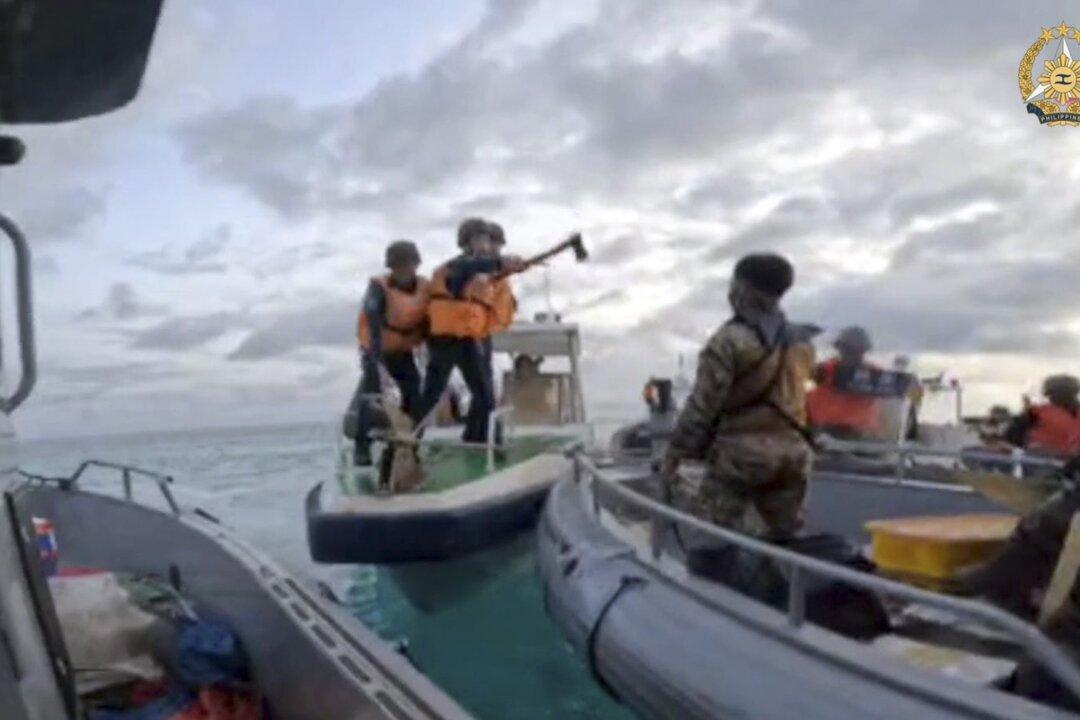The Philippines has demanded 60 million pesos (about $1 million) in damages from the Chinese communist regime after last month’s confrontation in the South China Sea, according to the Philippine military chief.
Armed Forces of the Philippines chief Gen. Romeo Brawner Jr. said on July 4 that the compensation demanded by Manila is to cover the two navy vessels rammed by Chinese motorboats in the clash. Gen. Brawner also asked Beijing to return seven rifles, which he said were seized by Chinese coast guard personnel during the confrontation.




